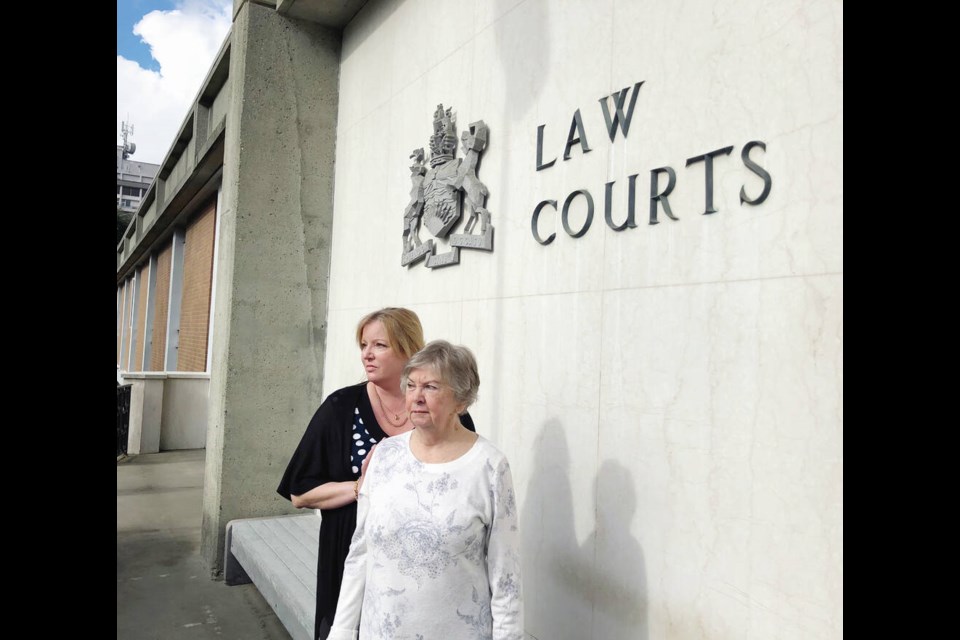A young First Nations man who struck and killed a Victoria massage therapist and critically injured her sister while driving impaired has been sentenced to three-and-a-half years in prison and prohibited from driving for five years after his sentence is served.
Relatives of Anthony Thomas, a member of the Tsartlip First Nation and father of four, began to weep loudly as he was placed in handcuffs and taken into custody Wednesday afternoon.
In March, after a lengthy trial, Thomas was convicted of impaired driving and dangerous driving causing the death of Kim Ward, 51, and bodily harm to her sister, Tracey Ward, 48, on the evening of Aug, 27, 2018.
“In cases of impaired and dangerous driving causing death and bodily harm, the principles of denunciation and deterrence require the greatest emphasis,” said B.C. Supreme Court Justice Brian MacKenzie. “Sentences must act as a deterrent to any who would make such choices, intentional risk-taking that leads to such tragedies.”
MacKenzie noted that just before the fatal collision, Thomas rear-ended another driver. Moments later, he was driving down Central Saanich Road, where the Ward sisters were walking their dogs along the side of the road.
He passed out at the wheel and the Jeep crossed the centre line into the northbound lane, then travelled onto a grassy boulevard, striking the two women. Kim was pronounced dead at the scene, while Tracey was left with severe cognitive impairment.
“Ellen Ward described the profound grief she has suffered that will be with her for a lifetime,” MacKenzie said of the women’s mother. “It was heartbreaking to hear the devastation and loss she has suffered as a result of this incident.”
Although police did not notice any physical signs of impairment, an RCMP forensic toxicologist testified that there was 297 nanograms of methamphetamine, 39 nanograms of amphetamine and 14 nanograms of Alprazolam or Xanax in one millilitre of Thomas’s blood, said MacKenzie.
Extreme fatigue is a well-known side-effect of the crash phase of methamphetamine. The drugs Thomas ingested before the collision caused his loss of consciousness and impaired his ability to drive, he concluded.
The judge considered the unique circumstances of Thomas’s Indigenous heritage and his family’s struggle with the legacy of the residential school system.
“Even though he has been affected by intergenerational trauma, he has been able to overcome these difficulties and done relatively well in the community,” said MacKenzie.
Thomas has a good work history and is only two courses short of his Grade 12, said MacKenzie, who called his lack of a criminal record a significant mitigating factor.
The judge noted that at 26, Thomas is a relatively young offender who is remorseful, accepts responsibility and has been attending counselling to deal with his guilt and shame. He has significant struggles with depression and has tried to take his own life three times.

